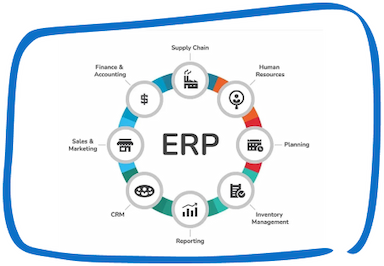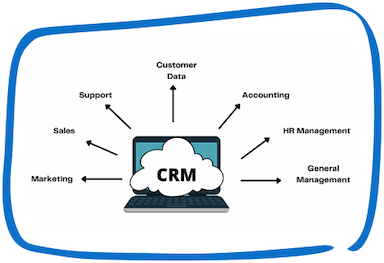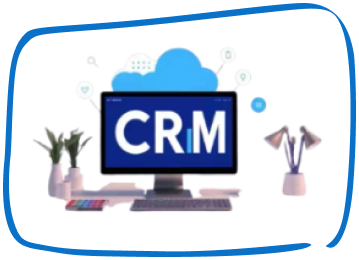Smart homes are changing how we think about real estate in the United Arab Emirates, making living spaces smarter and more efficient. As cities like Dubai and Abu Dhabi continue to grow, smart homes are becoming the new norm rather than a luxury addition.
These modern homes use technology to understand and meet resident needs while saving resources. The shift toward smart homes marks a significant change in how properties are managed and lived in.
In this article, let us see:
- Core Smart Home Technologies
- Living Experience With Smart Homes
- Resource Management
- Financial Benefits
- Privacy and Security
- Future Developments
- Implementation and Maintenance
Core Smart Home Technologies
The integration of smart technology in residential properties has become a key differentiator in the luxury real estate market. With year-round climate considerations and a focus on luxury living, smart home features are particularly valuable in creating comfortable, efficient living spaces.
Automation Systems
Modern smart homes run on advanced systems that control basic functions like heating, cooling, and lighting. These systems connect with property management software, giving owners and managers easy control over their buildings from anywhere. This connection helps keep both operations smooth and residents comfortable.
With temperatures often reaching extreme levels, smart climate control systems are particularly valuable. They automatically adjust based on time of day, occupancy, and even upcoming weather forecasts, ensuring optimal comfort while minimizing energy usage.
Security Features
Effortless Property Management Software
Manage leases, maintenance, and tenants all in one place. Simplify your property management today.
Security remains a top priority in residential developments. Smart homes now offer better security through modern cameras, fingerprint locks, and emergency systems. Property owners can check these security features remotely through real estate software, giving everyone peace of mind.
Advanced security features include desert-adapted cameras with dust protection, automated shade systems for sun protection, and smart locks that can withstand extreme temperatures while maintaining reliable operation.
Energy Management
Managing energy use is crucial in modern residential developments. Smart systems track and reduce electricity use by adjusting to when and how people use different rooms. Features like solar panels and smart thermostats work together to cut energy bills. Tenant management software makes it easy to see these savings and share benefits with residents.
The abundance of sunlight provides excellent opportunities for solar energy integration, while smart systems help manage air conditioning efficiently – often the biggest energy expense in residential properties.
Living Experience With Smart Homes
Modern urban living demands seamless integration of technology with daily life. The focus has shifted from standalone smart devices to fully integrated living experiences that anticipate and meet resident needs.
Centralized Control
Living in a smart home means having complete control through intuitive interfaces. Mobile apps and voice commands give residents power over their environment, from adjusting lighting to managing access for visitors. This level of control is especially valuable for international residents who frequently travel.
Smart home interfaces are designed to be multilingual and culturally adaptive, catering to the diverse resident population. Integration with property management platforms ensures smooth communication between residents and building management.
Smart Appliances
The modern kitchen and living spaces are transformed by intelligent appliances that enhance daily life. Smart refrigerators with inventory management, automated cleaning systems, and self-diagnosing appliances reduce the burden of home maintenance while improving efficiency.
These appliances connect to real estate management solutions, automatically scheduling maintenance and reporting issues before they become problems. This proactive approach is particularly valuable in luxury developments where service expectations are high.
Resource Management
In a region where resource conservation is paramount, smart home technology plays a crucial role in sustainable living. Advanced systems help manage both energy and water consumption effectively.
Water Systems
Water management takes on special significance in arid climates. Smart irrigation systems adjust to weather conditions, while leak detection systems protect against waste. Gray water recycling systems, managed through property management platforms, help maximize water efficiency.
Real-time monitoring allows property managers to spot unusual usage patterns and address issues quickly. Smart meters provide residents with detailed consumption data, encouraging conscious usage.
Financial Benefits
The economic advantages of smart home technology extend beyond basic utility savings, creating value for both property owners and residents.
Economic Advantages
Initial investment in smart technology is offset by significant long-term benefits:
- Reduced operational costs through efficient resource management
- Higher property values due to modern amenities
- Increased rental yields from premium smart features
- Lower maintenance costs through predictive maintenance
- Enhanced property attractiveness to high-value tenants
Privacy and Security
In an increasingly connected world, data protection and cybersecurity are fundamental considerations in smart home implementation.
Data Protection
Advanced encryption and security protocols protect resident information and system controls. Regular updates through specialized real estate software ensure systems remain secure against emerging threats. Property management teams receive ongoing training in cybersecurity best practices.
Future Developments
The rapid pace of technological advancement promises even more sophisticated smart home solutions in the coming years.
Artificial Intelligence
AI integration is moving beyond basic automation to truly intelligent home management. Systems learn from resident preferences and behavioral patterns to optimize comfort and efficiency automatically. This technology is particularly valuable in creating personalized experiences for residents from diverse cultural backgrounds.
Sustainability Features
Green building practices are increasingly important in modern development. Smart homes incorporate:
- Solar power integration
- Advanced waste management systems
- Energy-efficient lighting solutions
- Smart window systems that respond to sunlight
- Automated recycling systems
Implementation and Maintenance
Success in smart home technology depends on careful planning and ongoing support. Property developers and managers must consider both initial installation and long-term maintenance requirements.
Powerful Real Estate Software for Smarter Management
From listings to lead management, streamline every step of your real estate process in one easy platform.
System Integration
Professional implementation ensures all systems work together seamlessly. Real estate management solutions coordinate various components while maintaining system reliability. Regular updates keep systems current with the latest technology advances.
Ongoing Support
Maintenance programs use predictive analytics to prevent issues before they occur. Property management software tracks system performance and schedules necessary upkeep, ensuring consistent operation in challenging climate conditions.
Concluding Remarks
The smart home concept is the next frontier of residential real estate. It promises the highest level of comfort, efficiency, and control. These smart living spaces are expected to get even more advanced with time, but they will remain friendly to use.
Landowners and contractors who take these technological advances straight away forging ahead into the real estate market and are willing to fulfill the demand for modern and comfortable housing increases.
This however is not only the critique of smart home technology useful features but it is clear why some limitations concerning the architecture of smart homes are necessary. This enhances the overall enhancement of property value whilst also addressing the issues of sustainable urban development and contemporary standards of living.
Speak with Our Team!
4.9 Stars
1k+ reviews on






